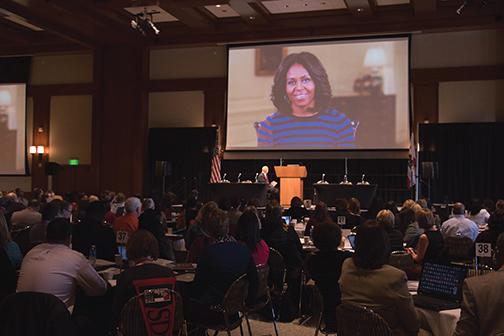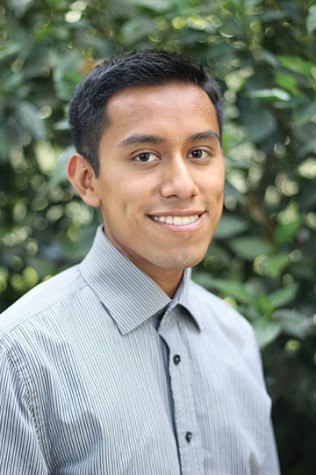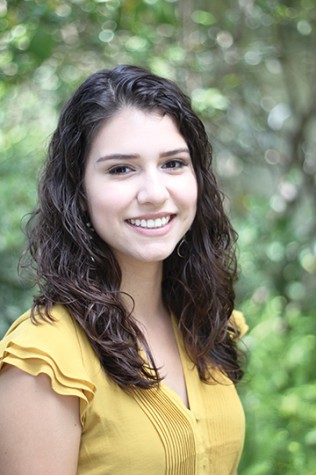The White House College Opportunity Convening concluded at San Diego State this past Tuesday. Advocates, school counselors and superintendents from 32 states as well as White House officials met to create plans for school counselors and related parties that will work to improve higher education opportunities for students.
First Lady Michelle Obama greeted the attendees Monday morning in a personalized welcome message addressing the audience and thanking SDSU for hosting the convening in conjunction with the Reach Higher Initiative.
“Like all of you, I believe that nothing is more important for a young person’s country and the future of our country than getting a good education,” Obama said in the video. “In today’s world that means going beyond high school to a community college, a four-year university or professional training program. I know that if we truly want to support our young people to reach their college dreams, we need to support our school counselors.”
The first day of the convening focused on creating action plans and collaboration as well as an emphasis on use of data to understand how school counselors can improve their interactions with students and what they are doing well.
In the afternoon, the room was filled with excitement and collaboration as attendees set up a “marketplace,” proposing topics for discussion by taping the desired topics on a wall inside Montezuma Hall. Individuals, whether they be experts on the topics or not, met for discussion of the specified topic by congregating at tables dedicated to the ideas.
Some topics called for discussion about qualitative and quantitative research in higher education, as well as discussion on college affordability and financial literacy.
Joyce Brown, a retired district counseling director from Illinois, said the convening this week was a historic moment for counselors that would allow the profession to be strengthened.
“I’m retired, but I’m not tired,” Brown said. “I’m running hard and I won’t quit until every kid understands how important it is to go to college.”
On the second day, John Barge, state school superintendent for Georgia, spoke about the importance of ensuring counselors are not given non-counseling duties, such as administrating an exam, despite cuts and economic burdens a school may face.
He gave a hypothetical scenario of a distressed, pregnant teenager who visits the office of a counselor. Throughout the day, the counselor is forced to attend to duties imposed on them because of budget cuts, such as supervision students during lunch and teaching a history class. Meanwhile, the pregnant student sits in the counselor’s office waiting to talk about her situation. At the end of the day, the counselor realizes he or she wasn’t able to achieve what a counselor is meant to do. Barge said before staffing cuts there would have been more counselors to help in the scenario.
He ended his speech by making a plea to policymakers and budget planners to see counselors as “vital members” of schools.
“Budget appropriately,” Barge said. “Protect counselors’ time. Don’t have them doing things they weren’t trained to do. You have assistant principals—let (them) build your master schedule.”
He added that one counselor can’t meet the needs of 600 students.
“Having a lot of the key constituents at the same table was very important,” Joey Nunez Estrada Jr., assistant professor of SDSU’s School Counseling Program, said.
Nola Butler-Byrd, chair of SDSU’s Department of Counseling and School Psychology, said the biggest payoff of the convening was that it showcased the value of school counselors.
Throughout the two-day event, attendees broke up into work groups to work on commitments to ensure success for students and counselors.
“The biggest thing is to keep the movement going to reach our initiatives … staying committed to reach outcomes,” Nuñez Estrada said.
Director of SDSU’s School Counseling Program Trish Hatch ended day two, alongside Assistant Professor for the program Laura Owen, with a message to First Lady Michelle Obama.
“Thank you for believing in school counselors,” Hatch said, visibly overwhelmed with happiness. “Thank you for trusting that school counselors will help serve the students.”











